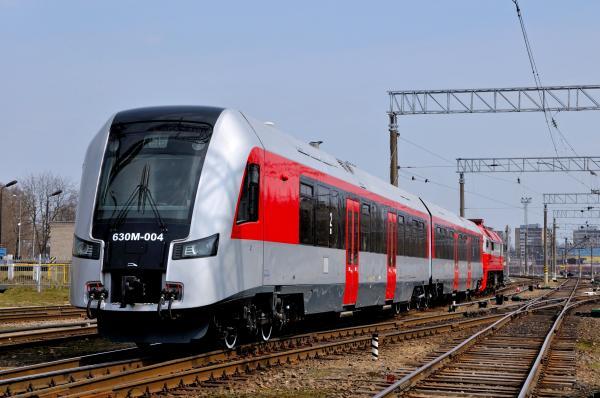
The President of the European Investment Bank (EIB), Werner Hoyer, has signed a EUR 50 million loan agreement with Lithuanian Railways today for the acquisition of modern rolling stock. After the support for the upgrading of railway infrastructure and purchase of new locomotives, this is now the third EIB operation aimed at modernising Lithuanian railways. The signing ceremony was held in Vilnius on the eve of the EIB Board of Directors meeting, which is taking place in Lithuania for the first time and has been organised in view of the Lithuania’s upcoming EU presidency.
“The EIB strongly promotes sustainable transport, and railways will remain one of the most energy-efficient and least polluting land transport modes. We therefore particularly welcome this agreement with Lithuanian Railways, as the project will improve the competitiveness and attractiveness of rail transport services and consequently encourage passengers to switch from road to rail” said EIB President Werner Hoyer during the signing ceremony.
“We must constantly renew our fleet, because failing to do so will leave us with few good to use wagons in 5-6 years from now. We are reacting to requests from our clients as well as growing demand for security and we seek to stay in competition” commented Stasys Dailydka, Director General of Lithuanian Railways.
Thanks to the EIB loan, 590 new wagons will be purchased (150 tank, 140 open-top, 100 covered and 200 platform wagons). Furthermore, three Diesel and six Electric Multiple Units for rail passenger traffic will be acquired and the overall purchase will serve to renew the company’s existing fleet. The main use of the freight wagons will be for cross-border railway traffic between Lithuania and the CIS countries.
As the EIB targets environmentally friendly transport services, these modern freight wagons will be equipped with low-noise brake blocks reducing noise by about 50% in comparison with old wagon equipment. Furthermore, the project will contribute to ensuring more efficient rail passenger and freight operations by providing new vehicles that will have lower maintenance costs and an improved tare weight/net weight ratio. The new rolling stock will offer better comfort for passengers and increased reliability. This will help rail to compete with other modes, particularly road, and increase its modal share.

©Lithuanian Railways
Download original

Photographer: EIB ©Lithuanian Railways
Download original

Photographer: EIB ©Lithuanian Railways
Download original

Photographer: EIB ©Lithuanian Railways
Download original